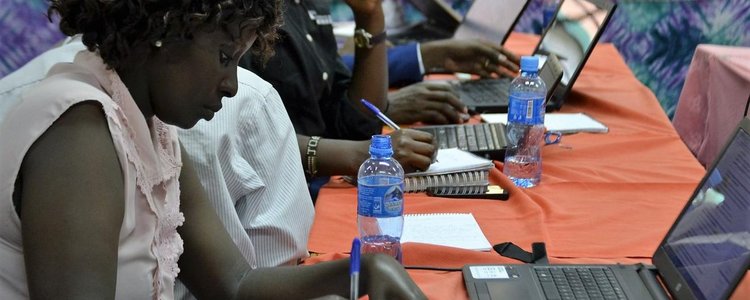Since the first COVID-19 case was reported in Kenya back in March 2020, the number of cases rose rapidly. Consequently, the Government of Kenya through a presidential address to the nation on 25th of March 2020, has been undertaking and reviewing various measures to curb the spread of the virus. As is now, these measures have and continue being deployed on an incremental basis as the virus spread and the impact is monitored.
As the government moved to ensure students’ safety at universities, they stare at the risk of having to repeat the specific year of their study. The academic calendar is in disarray, the 2020 national examinations at all levels may not happen. Most universities in trying to avoid such an occurrence initiated the online learning. However due to the grave disparities in socio-economic status of Kenyans, not all the students have been able to participate in the online classes even in the universities that adopted online teaching. To a large extent this is attributable to poor network infrastructure within the universities and in the country at large. Furthermore, the cost of internet connectivity is much way beyond the reach of many. This reality has worsened the pre-existing education disparities and significantly reduced the opportunities for many of the learners. The Kenyan government has thus reconsidered the “safe resumption of in person learning” in the universities and tertiary learning institutions.
“For the SCARA Project, the impact was far deep and largely negative. The last few activities that required face to face interactions were delayed. However, this being a project that has a leaning on ICT, it was an opportunity that stimulated innovation within the project.” said the Co-PI Dr. Raphael M. Gacheiya. The project has seen innovative approaches in support of its activities and training continuity: from social media such as Facebook, WhatsApp, Signal to Google meet and Zoom platform in addition to the e-mails. SCARA simply had only one option: being technologically innovative by adopting the existing technological platforms. This has ensured that whichever activity had been planned takes off despite the delay. On 26th of August 2020 a SCARA high level meeting was held via the Zoom platform. The meeting as one of its deliberations agreed that there is need to have innovators and innovations more visible technologically rather than in face to face so that farmers are more informed. The idea of having ICT innovators in one group is good and was encouraged. The attendees agreed to launch an ICT platform that can be a one stop shop for everything for the benefit of farmers. Further, innovators should also get in touch with the County Agriculture office. Such changes and adaptive ways have highlighted that the promising future of any project and sustainable running of such projects, cannot be separated from the deep-rooted philosophy of never leaving anyone behind. Faced with the limited face to face interactions for real time extension services, SCARA is leading the way in advocating for the adoption of ICT4Agri to provide alternative real time information to farmers in enhancing agriculture. Training and involvement of all agricultural stakeholders is key to the success of such initiatives.
